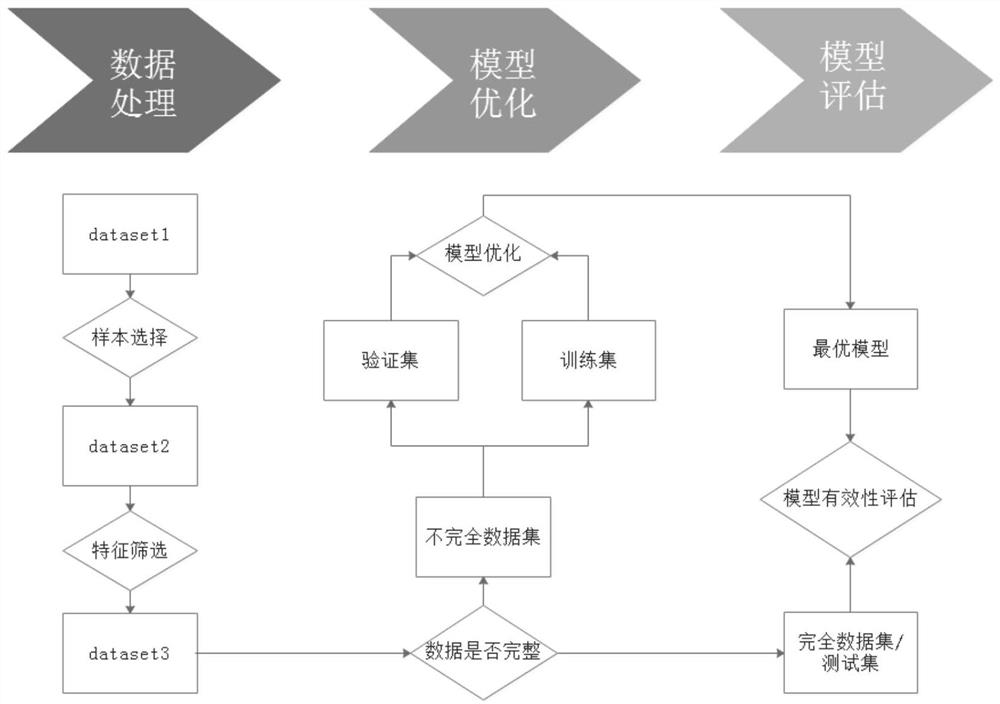A method and system for constructing a Kawasaki disease risk assessment model based on boosting algorithm
A technology for risk assessment models and construction methods, applied in medical simulation, medical data mining, computer-aided medical procedures, etc., can solve the problems of delayed patient treatment, lack of specificity, etc. The effect of delaying patient treatment conditions
- Summary
- Abstract
- Description
- Claims
- Application Information
AI Technical Summary
Problems solved by technology
Method used
Image
Examples
Embodiment 1
[0109] In order to verify the effectiveness of a system for constructing a Kawasaki disease risk assessment model based on the Boosting algorithm of the present invention, this example selects 42,498 patient data in the electronic case from July 2008 to March 2018. This embodiment adopts the xgboosting method.
[0110] 1. Data processing:
[0111]After the original data set is deleted, the incomplete data set includes 8204 samples, and the complete data set contains 471 samples. According to the present invention, the data set has the form: each row represents information of a patient, and each column represents a characteristic information, such as ID, group, gender, age, CRP, FG, etc., and the format of the data set is as Table 1.
[0112] Through data sample selection and feature screening, the final generated data set contains 8675 rows and 11 columns of features, as shown in Table 1.
[0113] Table 1
[0114]
[0115] 2. Optimal model data
[0116] The incomplete d...
PUM
 Login to View More
Login to View More Abstract
Description
Claims
Application Information
 Login to View More
Login to View More - R&D
- Intellectual Property
- Life Sciences
- Materials
- Tech Scout
- Unparalleled Data Quality
- Higher Quality Content
- 60% Fewer Hallucinations
Browse by: Latest US Patents, China's latest patents, Technical Efficacy Thesaurus, Application Domain, Technology Topic, Popular Technical Reports.
© 2025 PatSnap. All rights reserved.Legal|Privacy policy|Modern Slavery Act Transparency Statement|Sitemap|About US| Contact US: help@patsnap.com



